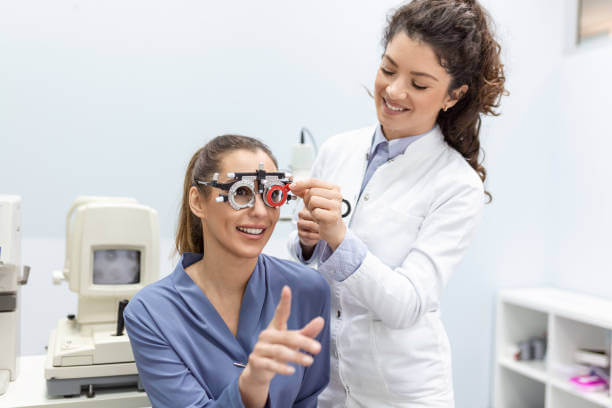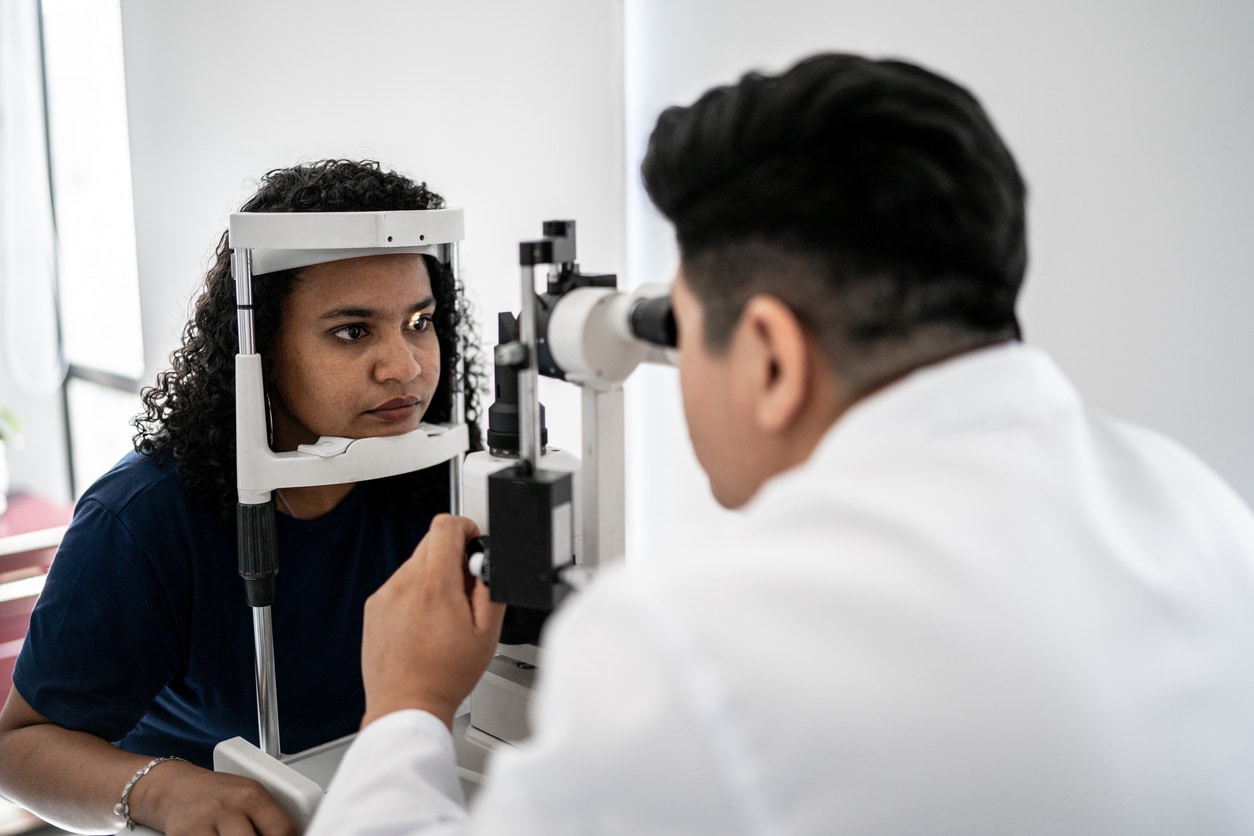Discover an Eye Doctor Near Me: Specialist Look After Your Eyes
Discover an Eye Doctor Near Me: Specialist Look After Your Eyes
Blog Article
The Relevance of Normal Eye Tests: Insights From an Experienced Ophthalmologist
Regular eye tests serve as a vital part of medical care that prolongs beyond simple vision improvement. A knowledgeable eye physician can provide understandings into how these analyses not only detect typical eye conditions however also disclose underlying health concerns that may or else go unnoticed.
Advantages of Regular Eye Examinations
Although many individuals might ignore the importance of routine eye tests, these evaluations play a crucial function in keeping overall wellness and well-being. Normal eye evaluations offer not just to evaluate vision however likewise to discover very early indicators of systemic wellness issues, consisting of diabetic issues and high blood pressure. By determining these conditions at their inception, patients can get prompt interventions, dramatically boosting long-lasting results.
Furthermore, eye tests can help in keeping track of existing health and wellness concerns, ensuring that any kind of changes in vision or eye wellness are immediately resolved (optometrist). The analyses enable for tailored referrals regarding eyewear, way of life changes, and safety actions versus possible eye pressure or damages
Beyond physical health and wellness, the benefits of normal eye examinations prolong to enhancing top quality of life. Eventually, prioritizing eye examinations fosters a proactive strategy to wellness management, encouraging people to take charge of their health.
Common Eye Conditions Detected
Normal eye examinations are important in detecting a selection of common eye problems that can considerably influence vision and general health. Among the most prevalent conditions recognized during these examinations are refractive errors, consisting of myopia (nearsightedness), hyperopia (farsightedness), and astigmatism. These problems frequently show up as blurred vision and can be easily fixed with prescription glasses or contact lenses.
Furthermore, cataracts, which cause clouding of the lens, are often detected in older adults. This condition can bring about diminished vision and calls for medical intervention for resolution. Another usual concern is glaucoma, a group of eye diseases that harm the optic nerve, usually linked to raised intraocular stress. Early detection is essential as it can prevent irreversible vision loss.
Age-related macular deterioration (AMD) is another considerable condition that impacts central vision, specifically in people over 50. Lastly, diabetic person retinopathy, a complication of diabetic issues, can result in extreme vision problems otherwise monitored routinely. Via comprehensive eye examinations, these problems can be recognized early, permitting prompt administration and therapy to maintain vision and boost top quality of life.
Relevance of Very Early Discovery
Early discovery of eye problems plays a crucial function in preserving vision and protecting against substantial health and wellness issues. Lots of eye diseases, such as glaucoma, diabetic person retinopathy, and age-related macular deterioration, can progress calmly without obvious signs in their beginning. By the time signs manifest, irreparable damages might have occurred, bring about long-term vision loss.
Regular eye tests assist in early medical diagnosis, allowing for prompt intervention and therapy. For example, dealing with elevated intraocular pressure can protect against the beginning of glaucoma, while taking care of blood glucose levels can substantially decrease the threat of diabetic person retinopathy. Furthermore, problems like cataracts can be efficiently taken care of with surgical treatment when identified early.

Exactly How Usually Should You Go To?
Figuring out the frequency of eye examinations is vital for preserving ideal eye health and vision. The general recommendation for grownups is to have a thorough eye test every one to 2 years, depending on private danger elements and helpful site age.
Individuals with specific threat variables, such as a household history of eye disease, diabetes mellitus, or existing vision troubles, might require even more constant examinations. Kids need to have their first eye test at six months of age, adhered to by added tests at age 3 and before getting in college. Normal exams during youth are essential as vision can alter quickly during developing years.
Ultimately, the frequency of brows through must be tailored per individual's circumstances, consisting of lifestyle, job-related dangers, and any pre-existing eye problems. Consulting with an eye care specialist can give individualized Resources recommendations, making certain that your eye health and wellness is routinely checked and maintained.
Tips for Your Eye Test
Preparing for your eye examination can enhance the efficiency of the visit and make sure a comprehensive analysis of your eye wellness. To maximize your time with the eye physician, it is crucial to gather pertinent information prior to your consultation. Start by putting together a listing of see post any kind of medications you are currently taking, consisting of over-the-counter medications and supplements, as these can influence eye health.
Furthermore, record any kind of symptoms you have experienced, such as blurred vision, pain, or frustrations. This information will assist your ophthalmologist in detecting possible issues. If you wear glasses or get in touch with lenses, bring them along, also if you do not use them regularly. This will help the physician examine any type of adjustments in your vision.
It is also advantageous to have a household history of eye conditions at hand, as genetic factors can contribute to your eye wellness. Finally, consider scheduling your exam for a time when you are much less hurried, enabling you to ask concerns and discuss your concerns thoroughly. By preparing properly, you ensure that your eye test is productive which your eye medical professional has all the essential info to supply the very best care feasible.

Conclusion
Routine eye tests play a crucial duty in maintaining both vision and general wellness. Ultimately, focusing on thorough eye assessments adds dramatically to the preservation of vision and the renovation of top quality of life, underlining the requirement of regular eye treatment in preventive healthcare methods.
Normal eye exams are important in finding a selection of common eye conditions that can considerably affect vision and total health.Identifying the regularity of eye examinations is crucial for maintaining optimal eye health and vision.Preparing for your eye examination can improve the efficiency of the see and ensure a comprehensive assessment of your eye health and wellness (optometrist). By preparing effectively, you make certain that your eye test is effective and that your eye medical professional has all the necessary information to provide the best care feasible
Inevitably, focusing on detailed eye examinations adds substantially to the preservation of vision and the enhancement of quality of life, underlining the necessity of regular eye treatment in preventative health care approaches.
Report this page